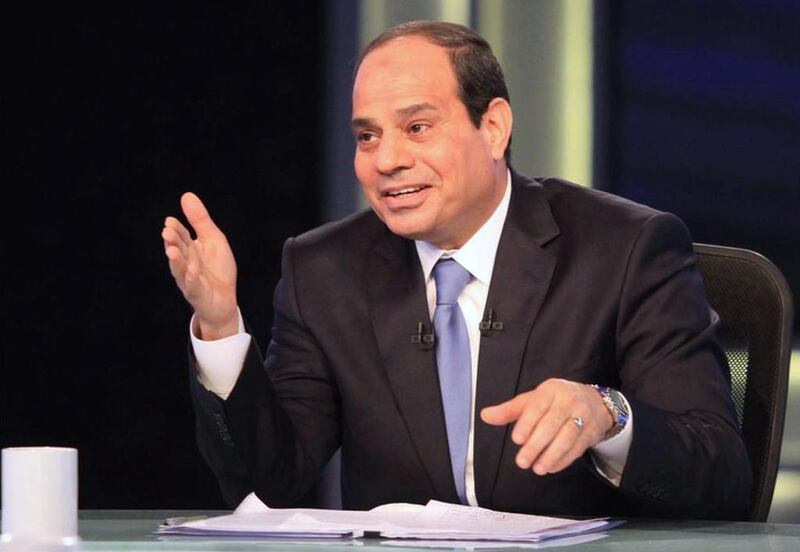After the tumultuous and unstable years that followed the overthrow of president Hosni Mubarak, the discovery of what is believed to be the world's largest natural gas field just off the coast of Egypt could hardly have come at a better time. This not only offers the prospect of decades of energy independence but reinforces the economic boost provided by the early opening of the second Suez Canal last month and the news that long-delayed parliamentary elections will be held next month.
The country desperately needs this kind of opening because millions of young and educated Egyptians have struggled to get decent jobs. Perceptions of lack of opportunity and inability to get ahead in life were among the primary causes of the uprising in Egypt in 2011. The need to provide stability and economic improvement have been identified as key priorities by president Abdel Fattah El Sisi since his election last year.
To his credit, Mr El Sisi has demonstrated a willingness to make tough and unpopular decisions of the kind that will ultimately put Egypt on a better economic footing. The reduction in subsidies for power, fuel and staple commodities were difficult but needed to be done to create a robust economy that will produce the jobs Egyptians seek.
The issue of subsidies is an important one because the most politically popular option would be to use the financial windfall from the Zohr gas field to ease the cost of living for ordinary Egyptians. Rather than seeking expedient short-term solutions, what is needed instead is a strategy to bolster the economy in the long run.
It is important for Egypt to treat this windfall as belonging as much to future generations as the current one. The Zohr gas field is estimated to be 30 trillion cubic feet of gas – the equivalent of 5.5 billion barrels of oil. The vast revenues that will follow ought to be dedicated to improving Egypt’s infrastructure, building new houses, creating jobs and to benefiting those Egyptians who have the enterprise to make the most of their talents.
When investors from around the world gathered in Sharm El Sheikh earlier this year for an economic development conference, Mr El Sisi told an audience of high-profile delegates and heads of state that Egypt needed investment to rebuild itself, while also emphasising that time was “crucial”. This new gas field provides the platform for Cairo to succeed – and to do so quickly.





